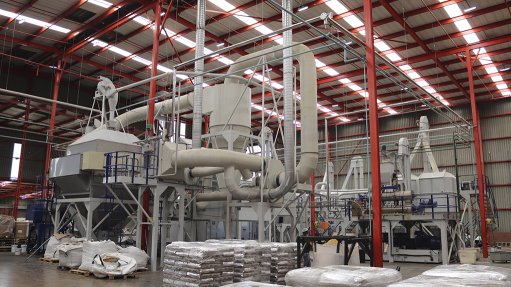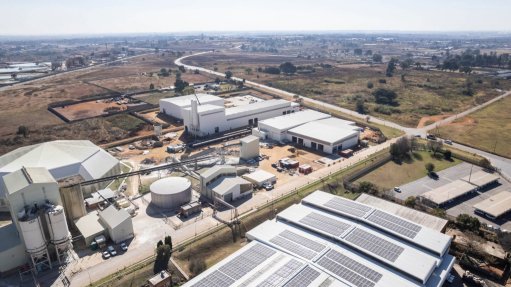SAICE decries Sanral tender awards as Chinese score most of the work
The South African Institution of Civil Engineering (SAICE) says it is “deeply concerned” by the recent awarding of South African National Roads Agency Limited (Sanral) tenders to joint ventures (JVs) led by foreign companies.
Sanral earlier this year cancelled five of its major tenders owing to “a material irregularity in the tender process”, where a resolution made by its board in January 2020 was not implemented in the evaluation of the affected tenders.
Sanral board chairperson Themba Mhambi explained that the five cancelled tenders had one thing in common –the absence of the implementation of a resolution of the Sanral board regarding the separation of duties.
Four of the five tenders, which were cancelled in June, have now been awarded following an evaluation process conducted by the Development Bank of Southern Africa.
A decision on the Gauteng open-road tolling tender operator has been put on hold pending resolution on key issues about the future of tolling in the province.
In the new tender round, the R4.05-billion Mtentu Bridge project, on the N2 Wild Coast road, was awarded to the China Communications Construction Company (CCCC) Mecsa JV.
The R1.23-billion rehabilitation of the R56 Matatiele rehabilitation project, in the Eastern Cape, was awarded to Welkom-based Down Touch Investments.
The R2.44-billion N3 Ashburton Interchange, in KwaZulu-Natal, was awarded to the China State Construction (CSC) Base Major JV, along with the R5.02-billion N2/N3 EB Cloete interchange improvements project, also in KwaZulu-Natal.
Base Major is based in Gauteng, and led by Stephen Lu.
SAICE notes that it has a number of concerns regarding the new awards, and that it has raised these concerns with PresidentCyril Ramaphosa in an open letter to his office.
These concerns include whether there were no South African companies capable of leading these JVs.
“What will the impact on the economy and the engineering fraternity be as a result of the appointment of foreign firms leading these JVs?” adds SAICE.
“Also, what is the potential negative impact on employment, job creation and skills development for South Africans?”
Another concern is whether the winning bidders will comply with local procurement rules in support of local content and the use of locally sourced materials for these projects.
“Also, who will provide oversight from government to ensure compliance with local procurement targets?” notes SAICE.
SAICE president Professor Marianne Vanderschuren says she is concerned by the potential impact on and cost to the economy and all South Africans.
“In light of the fact that this country has significant work to do in enabling economic recovery, the awarding of up to R6.65-billion worth of Sanral tender funds to foreign contractors is disappointing.
“Although South African tenders usually call for the use of local materials, and labour, can we be sure that these requirements will be honoured by foreign companies, as experiences throughout the rest of Africa do not suggest this?”
Sanral Responds
Noting what it calls the “emergence of a negative narrative with regard to Chinese investment into South Africa”, Sanral says South African law does not prohibit any foreign company from doing business in the country.
“Secondly, Sanral does not, at its discretion, choose who it awards tenders to.”
The roads agency says it is “compelled by law” to award a tender to the entity that “meets the compliance requirements and is the best in terms of relevant points and price”.
“Ultimately, it is the quality of a bid that wins a tender, and not the nationality of the bidder(s),” says Sanral. “Following a fair, open and competitive process, the contracts for all four tenders were awarded to the tenderers which submitted the highest scoring eligible bids.”
Sanral adds that both CCCC and CSCEC are registered on the Construction Industry Development Board register and the National Treasury’s central supplier database.
Both firms also submitted valid black empowerment certificates and, as part of their respective JVs with South Africa-based partner companies, complied with all applicable procurement regulations.
“These South African companies are free to form JVs with any other company, either locally or internationally,” says Sanral.
“Having fought so hard to prioritise economic development opportunities for black subcontractors on these tenders before they were initially cancelled, it stands to reason that we’ll continue to advance developmental opportunities that will allow black businesses to participate meaningfully in the economy,” adds Sanral’s Mhambi.
“To this end, as with any Sanral contract, the winning bidders must comply with the mandatory local content requirement, which, in this case, includes 100% procurement of South African steel and cement, as well as all applicable regulations and legislation, particularly environmental, labour and health and safety requirements.
“All contracts have also stipulated minimum contract participation goals for local labour and targeted small, medium and microenterprises,” notes Mhambi.
Sanral says that while infrastructure development remains instrumental in South Africa’s economic recovery post Covid-19, “it goes beyond simply creating jobs”.
The agency says the Mtentu Bridge and EB Cloete Interchange projects are “technically highly complex and challenging projects”, requiring megabridge construction expertise and experience, adding that the Chinese construction industry is one of the world leaders in megabridge building.
“We are mindful of South Africans’ concerns about the integrity of the procurement process, given the magnitude of the contract,” says Mhambi.
“As such, a due diligence process was conducted. In this instance, the probity test has not raised any red flags that would have disqualified the winning bidders.
Article Enquiry
Email Article
Save Article
Feedback
To advertise email advertising@creamermedia.co.za or click here
Comments
Press Office
Announcements
What's On
Subscribe to improve your user experience...
Option 1 (equivalent of R125 a month):
Receive a weekly copy of Creamer Media's Engineering News & Mining Weekly magazine
(print copy for those in South Africa and e-magazine for those outside of South Africa)
Receive daily email newsletters
Access to full search results
Access archive of magazine back copies
Access to Projects in Progress
Access to ONE Research Report of your choice in PDF format
Option 2 (equivalent of R375 a month):
All benefits from Option 1
PLUS
Access to Creamer Media's Research Channel Africa for ALL Research Reports, in PDF format, on various industrial and mining sectors
including Electricity; Water; Energy Transition; Hydrogen; Roads, Rail and Ports; Coal; Gold; Platinum; Battery Metals; etc.
Already a subscriber?
Forgotten your password?
Receive weekly copy of Creamer Media's Engineering News & Mining Weekly magazine (print copy for those in South Africa and e-magazine for those outside of South Africa)
➕
Recieve daily email newsletters
➕
Access to full search results
➕
Access archive of magazine back copies
➕
Access to Projects in Progress
➕
Access to ONE Research Report of your choice in PDF format
RESEARCH CHANNEL AFRICA
R4500 (equivalent of R375 a month)
SUBSCRIBEAll benefits from Option 1
➕
Access to Creamer Media's Research Channel Africa for ALL Research Reports on various industrial and mining sectors, in PDF format, including on:
Electricity
➕
Water
➕
Energy Transition
➕
Hydrogen
➕
Roads, Rail and Ports
➕
Coal
➕
Gold
➕
Platinum
➕
Battery Metals
➕
etc.
Receive all benefits from Option 1 or Option 2 delivered to numerous people at your company
➕
Multiple User names and Passwords for simultaneous log-ins
➕
Intranet integration access to all in your organisation


















